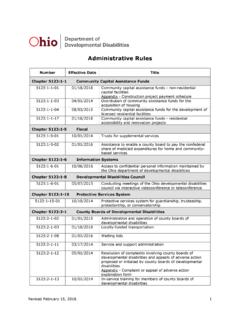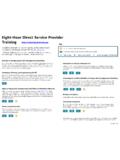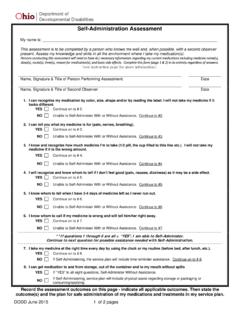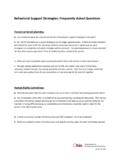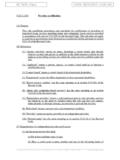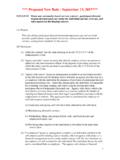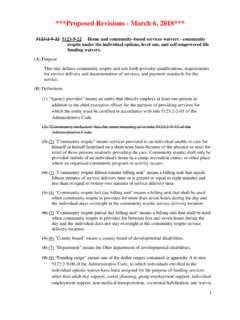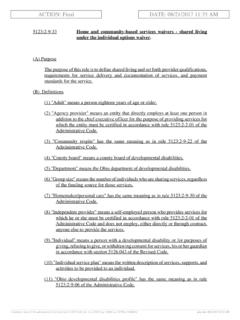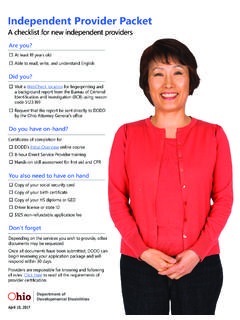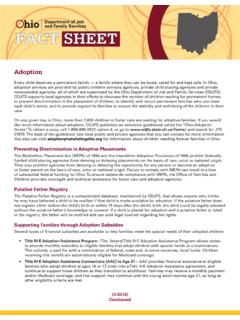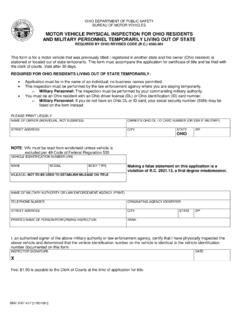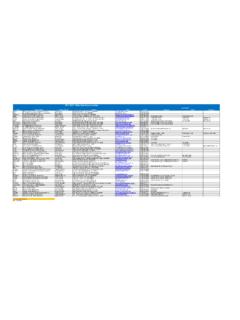Transcription of The Ohio Department of Developmental …
1 October 2017 The ohio Department of Developmental DisabilitiesUser GuideTHE ohio Developmental disabilities PROFILEThe ohio Developmental disabilities Profile (ODDP) User GuidePrepared byRichard DonelyChristopher LeyvaAshley McKinneySuzanna WitteOhio Department of Developmental Disabilities30 E. Broad Street Columbus, ohio 43215 ContentsPart 1: IntroductionWhen is it Completed? ..1 Reviews and Reassessments ..1 ODDP and Responsibilities of the Person ..2 Rights and Responsibilities of the Assessor ..2 Part 2: Assessment ProcessPreparing for the Interview ..3 Preparing the Person for the Interview ..3 Conducting the Follow-up.
2 4 Working with the ODDP Online Application ..4 Part 3: Completing Sections A, B, CSection A: Identification ..5 Section B: Living Arrangement ..5 Section C: Disability Description ..6 Part 4: Completing Sections D and ESection D: Medical Information ..7 Section E: Sensory and Motor Information ..10 Part 5: Sections F, G, H, ISection F: Cognitive and Communication Information ..11 Section G: Behavior ..11 Section H: Self-Care and Daily Living Skills ..13 Section I: Routine Voluntary Care ..14 Section J: Clinical Services ..15 The ODDP Process ..161 Part 1: IntroductionThe ohio Developmental disabilities Profile (ODDP) is an online assessment tool that assesses the needs of people with Developmental disabilities .
3 It contains a series of questions designed to determine a person s service needs and circumstances. When completed, the ODDP arrives at a funding range that will guide development of the waiver-funded services located in a person s individual service plan or calculate the Resident Assessment Classification (RAC) score for a person in an intermediate care facility (ICF).Current enrollees in the Individual Options Waiver and all residents of ICFs are required to have an ODDP completed by a county board of Developmental disabilities or an ICF provider. The ODDP ensures that people across the state of ohio who have similar needs and circumstances receive comparable levels of funding.
4 This allows county boards of Developmental disabilities to more accurately predict their costs, while ensuring consistency of service delivery across the statewide Developmental disabilities services system for both waiver enrollees and ICF ODDP is not a comprehensive functional assessment. It collects a limited portion of information about a person s needs and is it Completed?The assessment is completed for waiver recipients at the time of enrollment and before their individual service plan is finalized. Assessors complete the assessment for ICF residents when the person is admitted to a and ReassessmentsThe person s ODDP is reviewed on a regular basis: quarterly for ICF residents and annually for waiver recipients.
5 The ODDP is also updated when the person experiences a significant change of change of condition means a change in a person s physical or mental condition or functional abilities, which may result in a change in the person s support needs. This includes changes such as New diagnosis or maintenance medication Change in health status or severity of condition Change in level of independence Change in living arrangement Change in natural supports or voluntary care giving (for IO waiver enrollees only)2 ODDP AssessorsTypically, for enrollees on the Individual Options Waiver, the service and support administrator (SSA) is the assessor, but it can be other certified county board personnel.
6 For ICF residents, the initial assessor is a DODD staff member. Reassessments for ICF residents are completed by the person s qualified intellectual disabilities professional (QIDP) or whomever the facility deems have a significant role in obtaining valid assessment results. They must evaluate accurately and consistently for all people across the state. Consistently means that all assessors would obtain the same result for the same person and circumstance. To do this, they must have a comprehensive understanding of Assessor rights and responsibilities Rights and responsibilities of the person being assessed How to interpret questions and responses Definitions of terms used in the ODDP Clinical assessment processRights and Responsibilities of the PersonIf the person wants to participate in services, they must have an ODDP completed.
7 They have the right to Choose to participate in the ODDP interview or the right to choose not to participate Identify people who know them well that they would like to have participate in the interview alongside them Receive a copy of the completed ODDP assessment and assessment resultRights and Responsibilities of the AssessorAssessors have the responsibility to Explain the person s and assessor s rights and responsibilities in the assessment process Obtain information from people identified as knowing the person well Invite guardian(s) to participate Enter information into the ODDP that s supported with evidence through the interview process or record review Involve the person as much as he or she is able to particpateAssessors have the right to use professional judgment.
8 They also have the right to make informed decisions when there is conflicting information from two or more 2: Assessment ProcessThe ODDP is an online application; however, assessors frequently conduct the assessment using a paper copy of the assessment and then enter the information into the online application at a later may be circumstances where having the person present is not possible, such as when the person s medical, behavioral, or cognitive status impairs his or her ability to participate in the assessment. In most cases, the person should be present and given the opportunity to respond to the assessment for the InterviewBefore the interview, assessors review the person s files, such as the individual service plan (ISP), medical records, and other evaluations and , the assessor should schedule time to meet with the person being assessed as well as anyone the person chooses to have participate in the interview.
9 People chosen by the person could include anyone who knows the person well, including family members, other providers, friends, or s not necessary for everyone to be present at each interview. Assessors may have separate or follow-up conversations with the person or others at different times. However, assessors should always schedule the interviews at locations and times that are convenient and accessible for , assessors assemble materials, including copies of the tool and other items that might be useful, including Pens, pencils, markers, or crayons Paper Scissors Books, magazines, or newspapers Watch Simple addition or flash cards Examples of functional signsPreparing the Person for the InterviewAssessors review the ODDP process with the person in a manner in which he or she can understand.
10 Assessors also Explain the purpose of the assessment and that the answers to questions are private Give examples of the different types of questions asked in the ODDP Explain that some questions may sound strange or may not apply to the person, but assessors are required to ask all questions Explain that the person may take a break at any time, the appointment can be rescheduled, or the person could agree to allow another person to answer questions on their behalf Tell others present that their participation is wanted and needed and that they should provide relevant information whenever possible Review rights and responsibilities4 Conducting the InterviewDuring ODDP interviews, use a conversational approach and ask open-ended questions.

